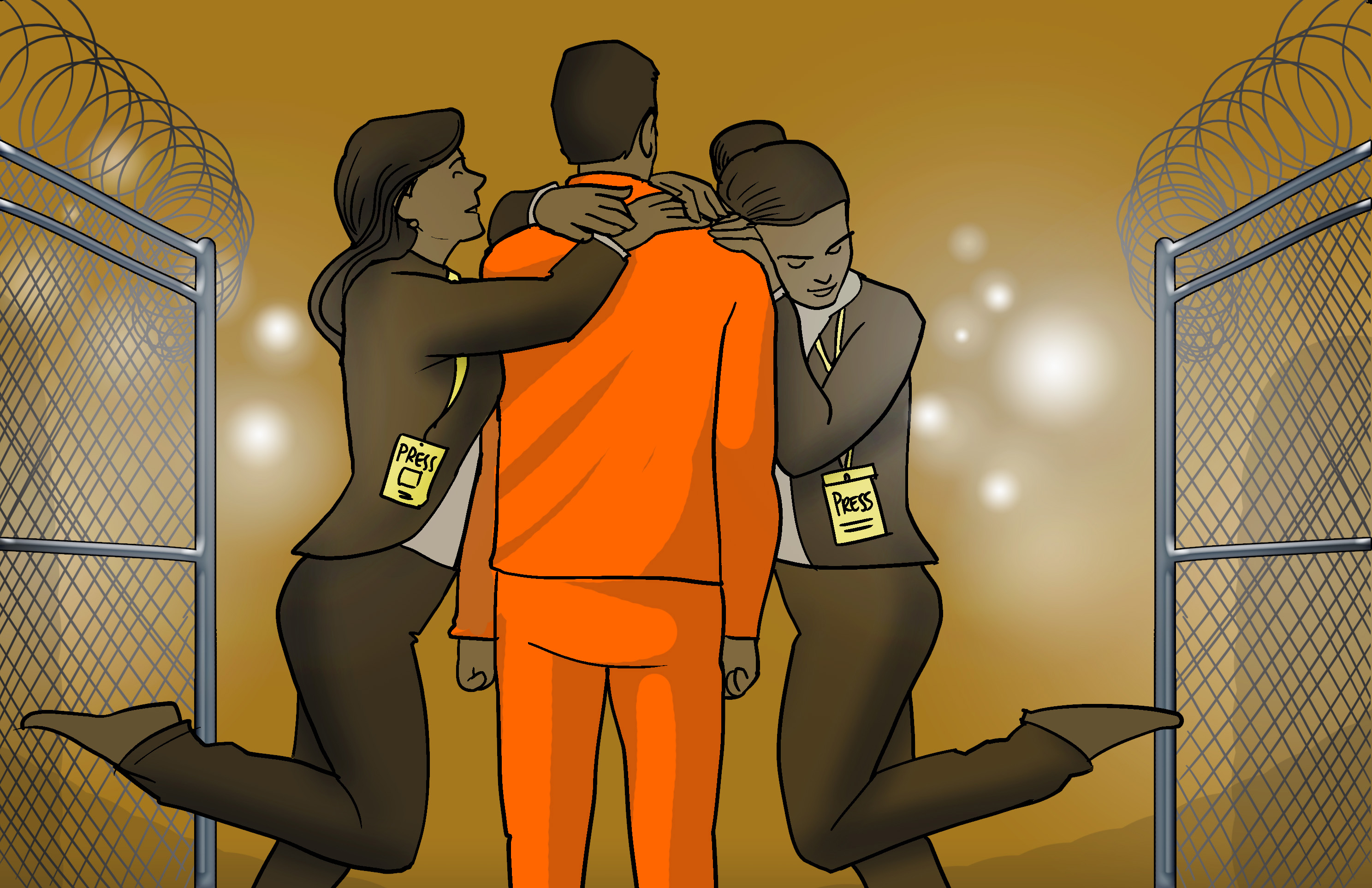Reporters get ethics, law wrong in vacated murder sentence
When Ryan Ferguson was released from prison Nov. 12 where he had been serving time for the murder of a newspaper sports editor, television journalists from across the country swooped down on Columbia, Mo., home of the University of Missouri’s School of Journalism. The big story provided a teaching moment for one professor, concerned about accuracy, media ethics and the appearance of objectivity. A lesson was to be learned, too, about convergence, and how an event can be transformed or amplified by the various forms of media buzzing around it.
